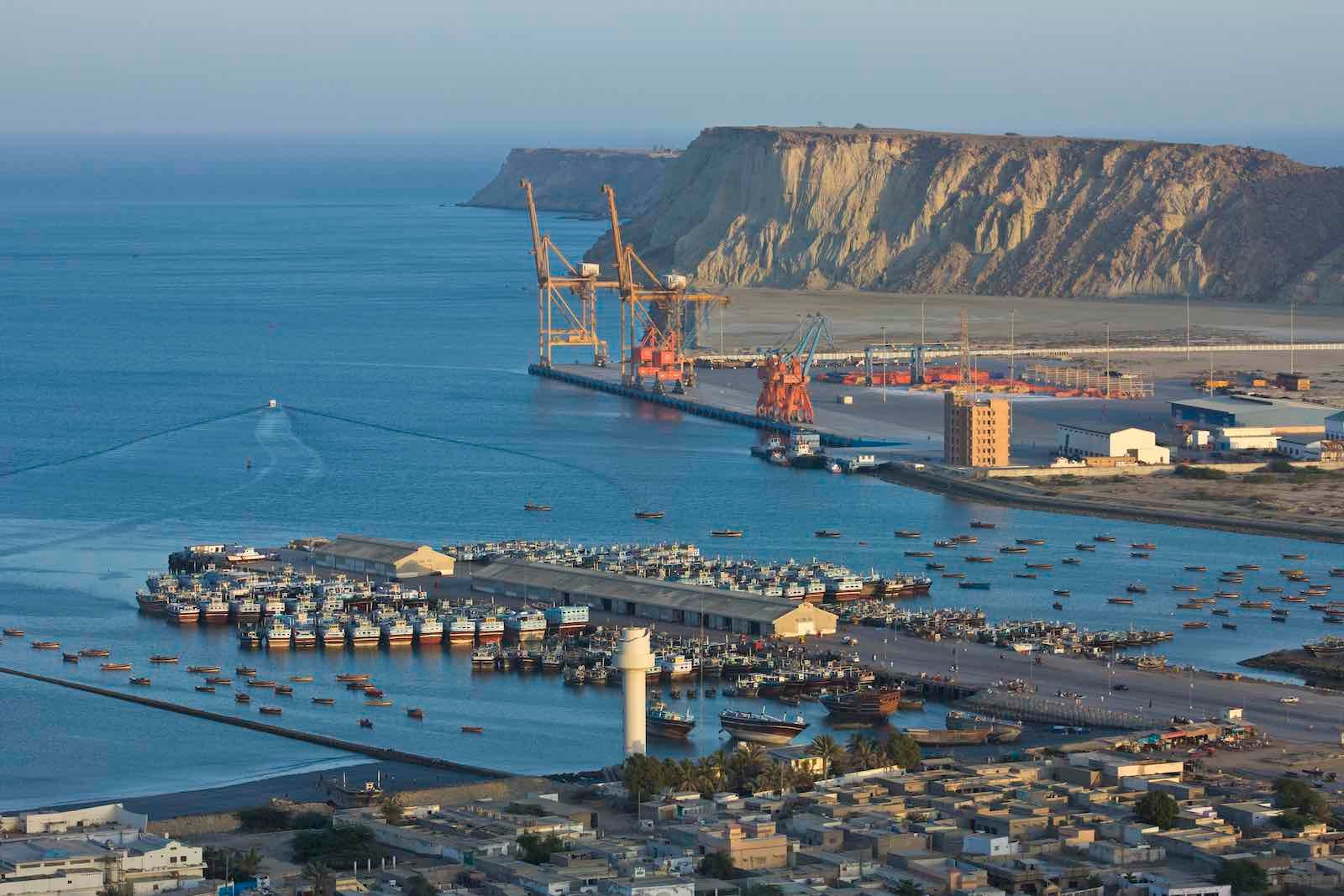Gwadar Becomes a Gateway to Central Asia: Bridges Across Regions
Arooba Younas
25 June 2025


At an important geostrategic crossroads connecting South, Central, and West Asia, Pakistan emerges as a critical connector and transit hub for regional connectivity through transit routes to enhance trade. This was underscored in the Kazan Forum 2025 by Abdul Aleem Khan, the Federal Minister for Communications, who identified six potential trade corridors for connecting Pakistan’s Quetta, Gwadar, and Karachi with Central Asia, Russia, and Europe while addressing the Forum’s closing session. Accordingly, Pakistan’s aim to become an economic bridge between South Asia and Central Asia with its role as a key hub in the Eurasian trade network, rather than merely a transit point, has been accentuated. Hence, Gwadar is poised to serve as a vital gateway to Central Asia, further solidifying Pakistan’s strategic role in regional connectivity.
Pakistan’s infrastructural aspirations to realize the identified trade corridors include the construction of a road network from Karachi to Moscow via China and Kazakhstan and Gwadar to Moscow via Afghanistan and Turkmenistan. The minister wanted to link Pakistan through roads and rail networks with Iran, Azerbaijan, and Russia. Gwadar to Moscow is better than other routes because it reduces distances by an estimated 1200 – 1400 kilometers. Nonetheless, all routes present promising opportunities for Pakistan to become a gateway for global trade via Karachi and Gwadar ports while fostering Central Asia‘s international engagement.
Furthermore, it was stated that the pilot phase of a train link to Russia via Iran is underway to reduce transportation time and cost between Asia and Europe while strengthening economic ties. Russia could directly export natural gas, oil, and industrial goods to Pakistan, whilst Pakistani exports of textile and agricultural products could better reach Turkmenistan, Kazakhstan, Iran, and Russian markets.
Pakistan’s attendance at the Forum emphasized its active engagement in regional cooperation through its proactive role in the Shanghai Cooperation Organisation to enhance connectivity as per its resolve for an integrated economic landscape. Pakistan’s participation in the China-Pakistan Economic Corridor (CPEC) flagship project is an exemplary case of promoting economic growth and regional integration, which has started positively transforming Pakistan’s economy and infrastructure. As iterated by the former ambassador of Pakistan to Russia, Mustafa Kamal Kazi, regional connectivity will bring prosperity and economic progress and serve the broader purpose of conflict resolution in the region.
Further enhancing connectivity with the landlocked Central Asian Republics (CARs) and allowing Middle Eastern markets to connect with emerging Central Asian markets, the role of the Gwadar port cannot be understated. While Gwadar port has already begun shipment and cargo services under the Afghan Transit Trade, allowing landlocked Afghanistan to undertake transit trade, Pakistan’s intention to facilitate Gwadar becoming the shortest and most economical route to the CARs, thus emerging as a key transit hub, remains unwavering. A case in point is Turkmenistan, poised to sign a Memorandum of Understanding with Pakistan to become the first CAR to access the Gwadar port under the agreement. Turkmenistan’s export-led economy, which focuses on trading nitrogenous fertilizers, gas, and petroleum, would benefit from an exceptional opportunity to reduce dependency on Iranian and Russian routes in the backdrop of geopolitical instability and sanctions, alongside the diversification of its trading partners by accessing European, Middle Eastern, and African markets.
Mr Khan also spotlighted the Uzbekistan-Afghanistan-Pakistan (UPA) railway project at the Kazan Forum as a way to expand regional infrastructural links. Dubbed “the event of the century” by the Uzbek Chairperson of the Senate, this ambitious project, estimated to cost $633 million, aims to lay down a 760-kilometre extensive network of a direct railway link connecting Termiz, Logar, and Mazar-i-Sharif, and culminate in the Kohat District. This railway network can strengthen Pakistan’s import capacity for affordable energy from CARs and Russia while tapping into the Central Asian markets for exports. It was hoped during a recent telephonic conversation between Pakistan’s Foreign Minister Muhammad Ishaq Dar and Uzbekistan’s Foreign Minister Saidov Odilovich that the framework agreement for the railway would be finalized soon.
In addition to constructing tangible infrastructure projects, emphasis has been placed on cultural exchanges between CARs to pave the way for regional harmony. This is no surprise, given that Pakistan and CARs have been connected through religion and culture since the end of the 3rd millennium BC, owing to the ancient Silk Road that helped exchange ideas and cultures in addition to goods. In that vein, Pakistan, under its “Vision Central Asia” policy, has signed several bilateral agreements with individual CAR states to promote cultural exchanges with CARs, inclusive of educational and people-to-people exchanges, including sports, tourism, student exchange programs, language training initiatives, and cooperation in the scientific and technological domains.
Pakistan plays a significant role in driving regional connectivity through infrastructural projects and formulating connections through culture by leveraging its geographical position to forge a South-Central Asian interconnection to achieve its economic and strategic interests.


The Centre for Aerospace & Security Studies (CASS) was established in July 2021 to inform policymakers and the public about issues related to aerospace and security from an independent, non-partisan and future-centric analytical lens.

@2025 – All Right Reserved with CASS Lahore.